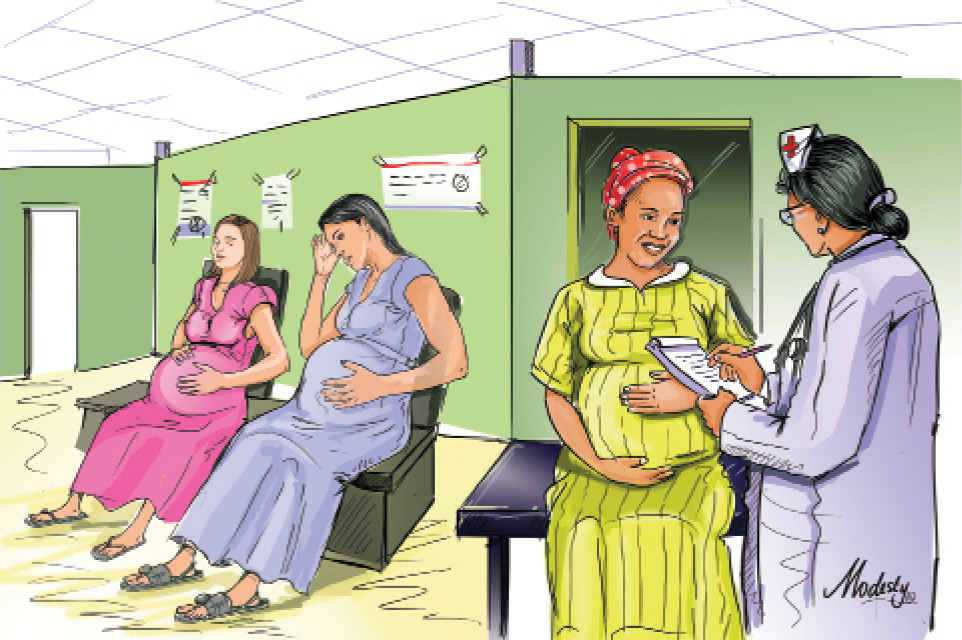Why women shouldn’t give birth at home — Expert
Munirah 26, was in labour at home for two days but ended up with a stillbirth. During her pregnancy, she had told her family that she preferred to give birth at home because it offered her optimal privacy. However, the labour at home was a difficult one and the women that attended to her could […]

Munirah 26, was in labour at home for two days but ended up with a stillbirth. During her pregnancy, she had told her family that she preferred to give birth at home because it offered her optimal privacy.
However, the labour at home was a difficult one and the women that attended to her could not save the baby.
Also, Yunusa, who lost his 18-year-old wife during childbirth at home, said she bled profusely and even though the birth attendants tried their best, she died before she could be taken to hospital.
According to a community health practitioner, Khadijat Lukman Dolakpo, women should give birth at hospital and not at home because giving birth at home could lead to risk of complications.
She said complications could come up during labour at home and gave examples of the complications to include is breech baby.
She said labour actually starts at home but it should end at the hospital.
She said: “While we normally have traditional birth attendants that can attend to women in labour, complications like breech babies may occur and there is no way you can handle a breech pregnancy at home.”
She said a breech pregnancy occurs when the baby is positioned head-up in the woman’s uterus and the feet are pointed towards the birth canal.
“This means the baby is not in the right position in the womb so instead of the baby coming out with its head, it comes out with one of its legs. This kind of condition cannot be handled at home, and can lead to loss of blood, death of the baby, and also death of the mother,” Dolakpo said.
She said when you go for good antenatal care service during pregnancy, you go for scan during the last trimester and it will tell you the position of your baby before you reach your delivery date.
“So if the baby is not in a good position, there is a way the child can be positioned correctly. You will also be screened for hepatitis and HIV.
“These are the things health experts cross-examine and check if it is compatible before giving a pregnant woman blood.
“Sometimes women tend to lose blood when they are pregnant. So they have blood transfusion and that cannot be done at home.”
She said there was also the risk of infection. “Even if you get a traditional birth attendant to attend to you, there can be risk of infection in the home but in the hospital there is a sterile labour ward, a theatre for delivery where everything is sterilised so you don’t have any risk of contaminating the pregnant women and the baby.”
She said another reason women should give birth in the hospital is to avoid the complication of fetal distress.
“When a woman passes her delivery day (some people actually pass the first 40 weeks of pregnancy). It can lead to complications and death of the baby.
“You know the gestational age for a pregnant woman is 40 weeks.
“You can deliver at 34 or 35 weeks; a maximum 40 that’s nine months. Once you exceed one week of the 40 weeks, you have to go for possible cesarean section.
“This is done because the baby might become totally distressed and symptoms of this include: seeing faeces coming out from your vagina that means the baby is in distress and cannot breathe well.”
Dolakpo said this happens because at nine months, the baby’s organs are developed and it is ready to come out.
“So once the baby spends one week, it means it is no more comfortable in the womb and that can lead to the death of the baby,” she said.
The medical expert said pregnant women who try to deliver at home and have passed their months of delivery might not know all these.
“So it is very important to deliver at the hospital because even where you sit there is a lot of bacteria, so you can’t deliver pregnant women where there is no infection control,” she added.
Maijiddah H. Ndanusa
